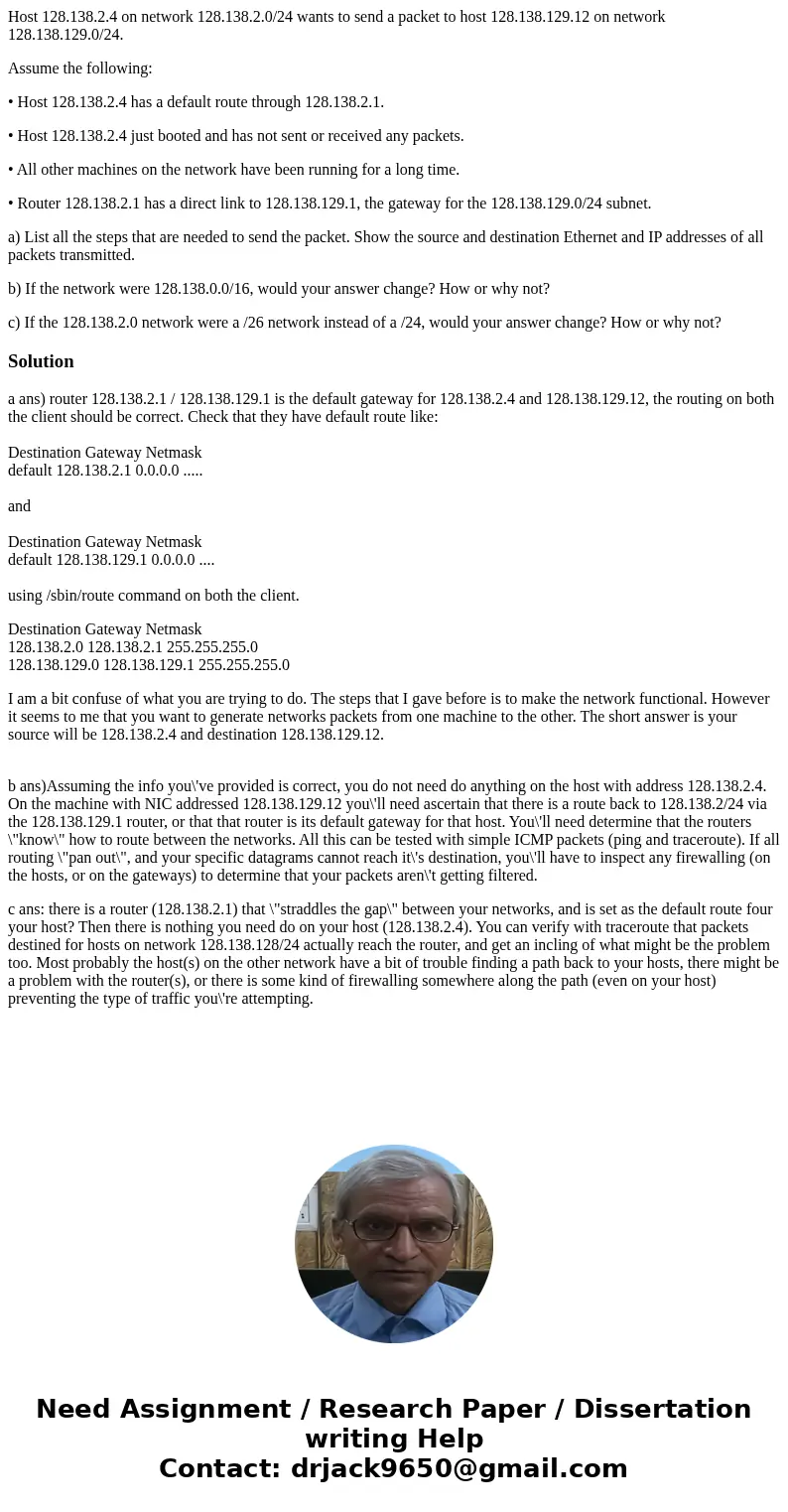Host 12813824 on network 1281382024 wants to send a packet t
Host 128.138.2.4 on network 128.138.2.0/24 wants to send a packet to host 128.138.129.12 on network 128.138.129.0/24.
Assume the following:
• Host 128.138.2.4 has a default route through 128.138.2.1.
• Host 128.138.2.4 just booted and has not sent or received any packets.
• All other machines on the network have been running for a long time.
• Router 128.138.2.1 has a direct link to 128.138.129.1, the gateway for the 128.138.129.0/24 subnet.
a) List all the steps that are needed to send the packet. Show the source and destination Ethernet and IP addresses of all packets transmitted.
b) If the network were 128.138.0.0/16, would your answer change? How or why not?
c) If the 128.138.2.0 network were a /26 network instead of a /24, would your answer change? How or why not?
Solution
a ans) router 128.138.2.1 / 128.138.129.1 is the default gateway for 128.138.2.4 and 128.138.129.12, the routing on both the client should be correct. Check that they have default route like:
Destination Gateway Netmask
default 128.138.2.1 0.0.0.0 .....
and
Destination Gateway Netmask
default 128.138.129.1 0.0.0.0 ....
using /sbin/route command on both the client.
Destination Gateway Netmask
128.138.2.0 128.138.2.1 255.255.255.0
128.138.129.0 128.138.129.1 255.255.255.0
I am a bit confuse of what you are trying to do. The steps that I gave before is to make the network functional. However it seems to me that you want to generate networks packets from one machine to the other. The short answer is your source will be 128.138.2.4 and destination 128.138.129.12.
b ans)Assuming the info you\'ve provided is correct, you do not need do anything on the host with address 128.138.2.4. On the machine with NIC addressed 128.138.129.12 you\'ll need ascertain that there is a route back to 128.138.2/24 via the 128.138.129.1 router, or that that router is its default gateway for that host. You\'ll need determine that the routers \"know\" how to route between the networks. All this can be tested with simple ICMP packets (ping and traceroute). If all routing \"pan out\", and your specific datagrams cannot reach it\'s destination, you\'ll have to inspect any firewalling (on the hosts, or on the gateways) to determine that your packets aren\'t getting filtered.
c ans: there is a router (128.138.2.1) that \"straddles the gap\" between your networks, and is set as the default route four your host? Then there is nothing you need do on your host (128.138.2.4). You can verify with traceroute that packets destined for hosts on network 128.138.128/24 actually reach the router, and get an incling of what might be the problem too. Most probably the host(s) on the other network have a bit of trouble finding a path back to your hosts, there might be a problem with the router(s), or there is some kind of firewalling somewhere along the path (even on your host) preventing the type of traffic you\'re attempting.

 Homework Sourse
Homework Sourse